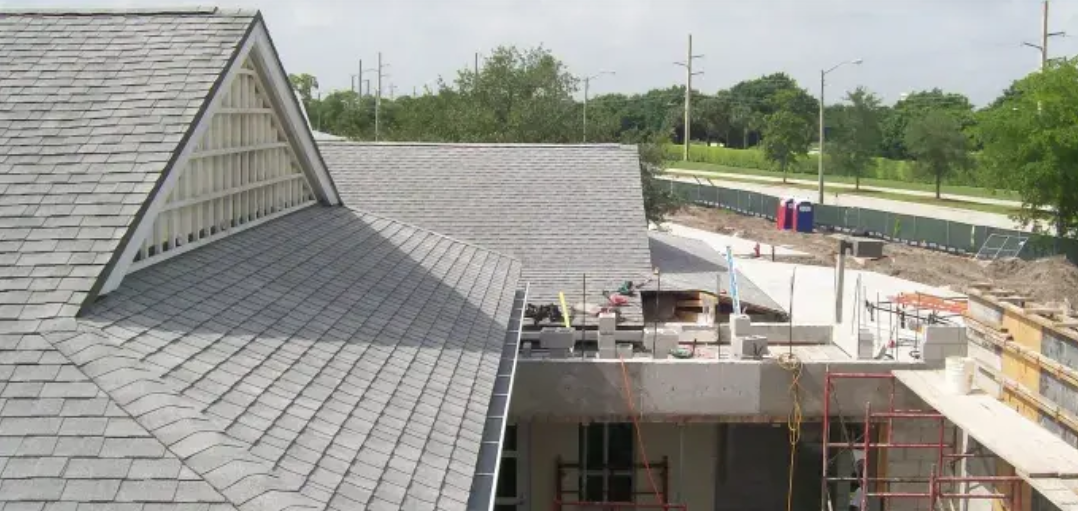When you spot damage on your roof, it's easy to feel stuck between two costly words: repair or replace?
Maybe it's a minor leak. Maybe shingles are missing after a recent storm. Or maybe it's just age catching up with your system. The question is: do you patch it and move on, or invest in a full replacement?
At Best Roofing, we've helped thousands of property managers, HOA boards, and building owners throughout South Florida navigate this exact dilemma. Let's break down how to decide between roof repair vs. replacement, so you can make the smartest long-term decision for your building—and your budget.
How Old Is Your Roof?

The age of your roof is one of the most important factors to consider. Most commercial flat roofing systems last a little over 15 years, depending on the material, quality of installation, and maintenance history.
-
If your roof is under 10 years old and has had few issues, a repair might be all you need.
-
If it's 15+ years old and issues are recurring, repairs may just be delaying the inevitable—and wasting money in the process.
Pro tip: Replacing an aging roof now could save you from surprise failures down the road, especially during South Florida's storm season.
What's the Extent of the Damage?
Not all roof damage is created equal.
Repairs make sense if:
-
You've lost a few shingles or a small membrane section
-
Damage is limited to one area (due to tree limbs, wind uplift, etc.)
-
The underlying roof deck is still in good condition
Replacement is the better call when:
-
Multiple areas are affected
-
Water has reached the insulation or structural deck
-
Leaks have recurred even after recent repairs
What Type of Roof Do You Have?

The material and structure of your roof matter.
-
Flat roofs with membrane systems (TPO, modified bitumen, etc.) are often repairable, but seams and flashings tend to fail with age.
-
Sloped shingle roofs may be patched, but color-matching can be difficult—and visible mismatches could reduce curb appeal and property value.
-
Tile and metal roofs often allow for isolated repairs unless the underlayment is compromised.
Each system behaves differently, so working with a contractor experienced in commercial roof systems (like Best Roofing) is key.
How Urgent Is the Situation?
Let's say a storm is on the way or your tenant reports active leaks—now what?
Short-term repairs may be necessary to protect the building while planning for full replacement. But in many cases, urgency doesn't eliminate the need for replacement—it just buys you time to do it right.
Don't wait until interior damage, mold, or code violations force your hand. Emergency repair costs can quickly exceed the investment of a planned recovery.
What Are Your Long-Term Goals?
Are you planning to:
-
Sell the building soon?
-
Renew long-term tenant leases?
-
Maintain the property for decades?
If resale or refinancing is on your horizon, a new roof can increase building value and buyer confidence. If you plan to hold the property, investing in a full replacement could improve energy efficiency, extend warranty coverage, and eliminate the cycle of recurring repair costs.
How Does Budget Factor In?
We get it—cost matters. Here's how repairs vs. replacement typically compare:
|
Option |
Cost Per Sq. Ft. |
Value Over Time |
Risk |
|
Repair |
Higher per square foot |
Temporary fix |
May recur or miss hidden issues |
|
Partial Replacement |
Medium |
Better protection |
Can still mismatch or create uneven aging |
|
Full Replacement |
Lower per square foot |
Long-term ROI |
Higher upfront cost, but fewer surprises |
Key insight: Repairs often appear cheaper upfront, but they can become more expensive long-term if they fail or need frequent repeat work.
What About Recovery?
"Re-roofing" refers to installing a new roof layer over an existing one. It's faster and cheaper than full tear-off, but it has limitations:
-
Only permitted if your roof has one existing layer (Florida building codes prohibit three)
-
Doesn't allow inspection or repair of hidden deck damage
-
May void warranties from some manufacturers
Best Roofing offers expert evaluation to determine if recovery is safe and code-compliant for your property. But in many cases, full replacement is the only way to get a system warranty and ensure long-term performance.
Don't Forget Energy Efficiency
New roofing systems can dramatically improve energy performance. Upgrading to a reflective membrane (like TPO) or adding new insulation can reduce cooling costs—especially critical in South Florida's climate.
A replacement is your chance to modernize the system, reduce energy usage, and meet new code requirements that repairs may not address.
So, What's the Best Choice?

Still unsure if you need repair or replacement? Here's our honest advice:
Choose repair if:
-
The roof is relatively new
-
Damage is minor and isolated
-
You need a short-term solution before scheduling replacement
Choose replacement if:
-
The roof is near the end of its service life
-
There are recurring leaks or widespread deterioration
-
You want to avoid emergency calls, tenant disruption, or escalating repair bills
Not Sure? Start with an Inspection
Best Roofing offers a free inspection to assess your roof's condition and provide a clear, pressure-free recommendation. We'll walk you through photos, core samples, moisture maps, and scope options—so you're informed, not overwhelmed.
Need to Make a Decision? We Can Help.
We understand the unique pressures property managers, CAMs, and board members face. We're not just roofers—we're your roofing partner. From transparent proposals to flexible financing options, we make the process clear and the solution long-lasting.
Schedule your inspection today and take the guesswork out of roof repair vs. replacement.
Book Your Free Roof Inspection



